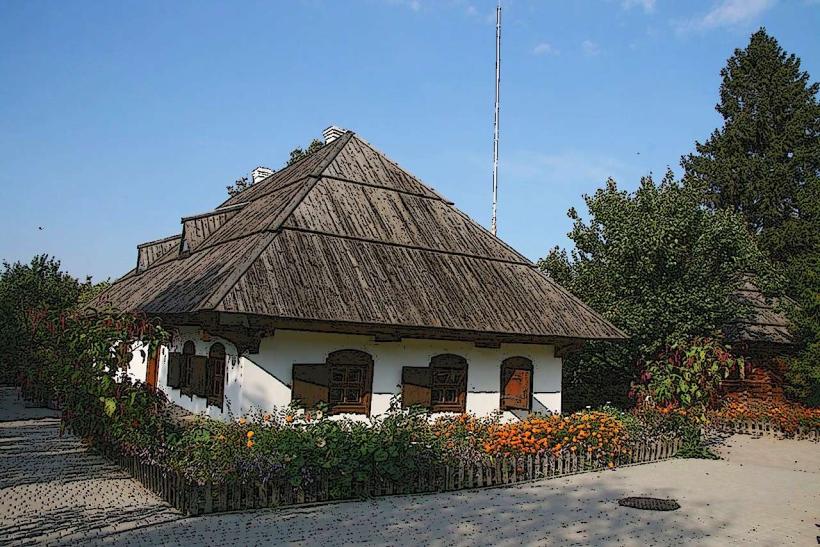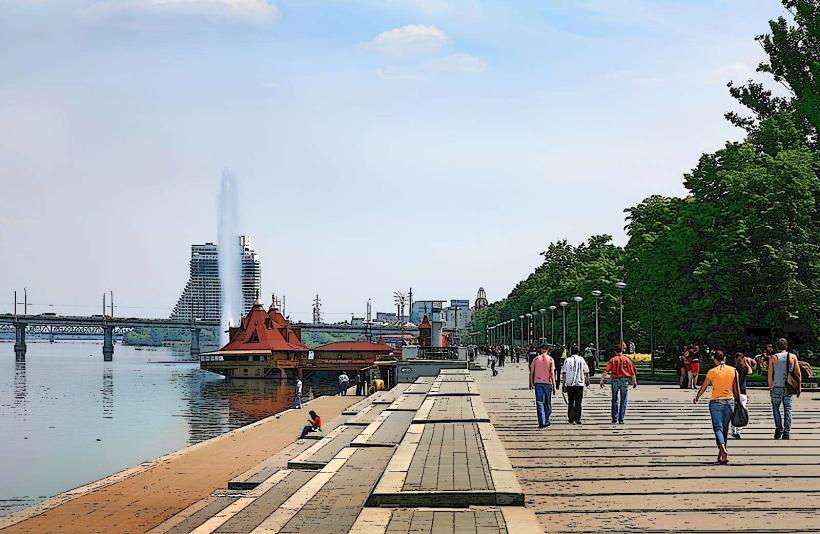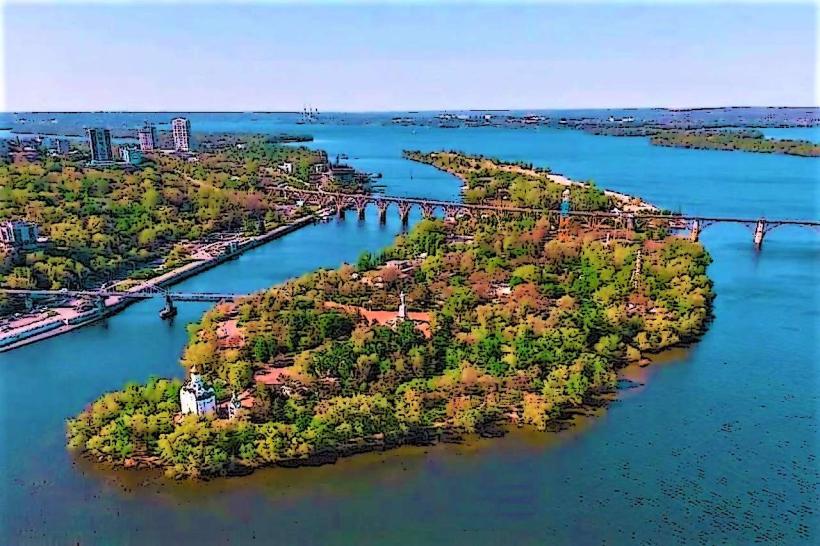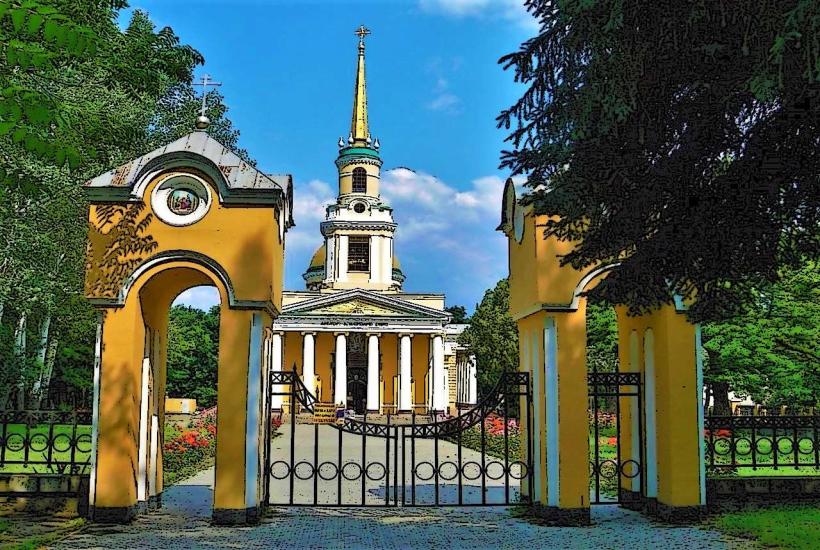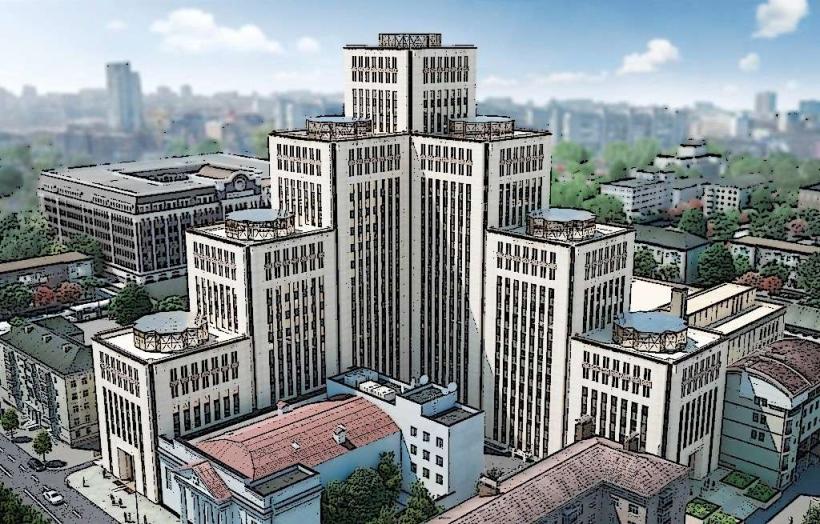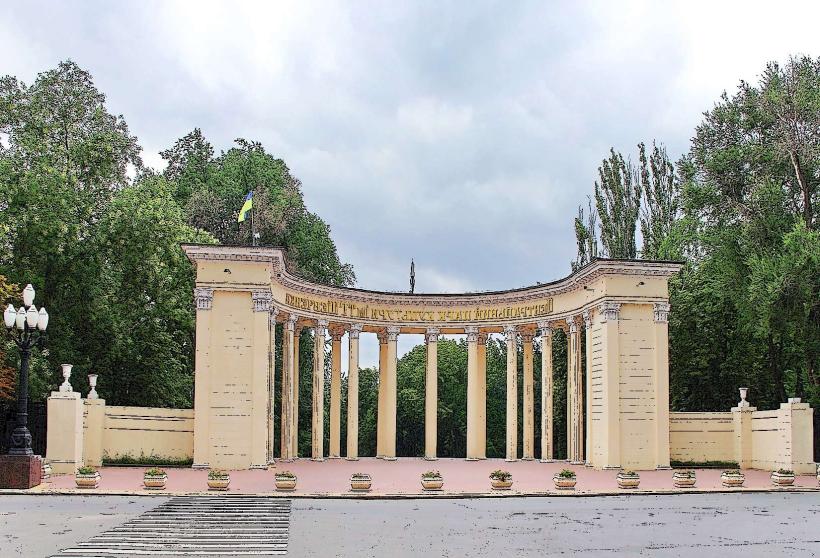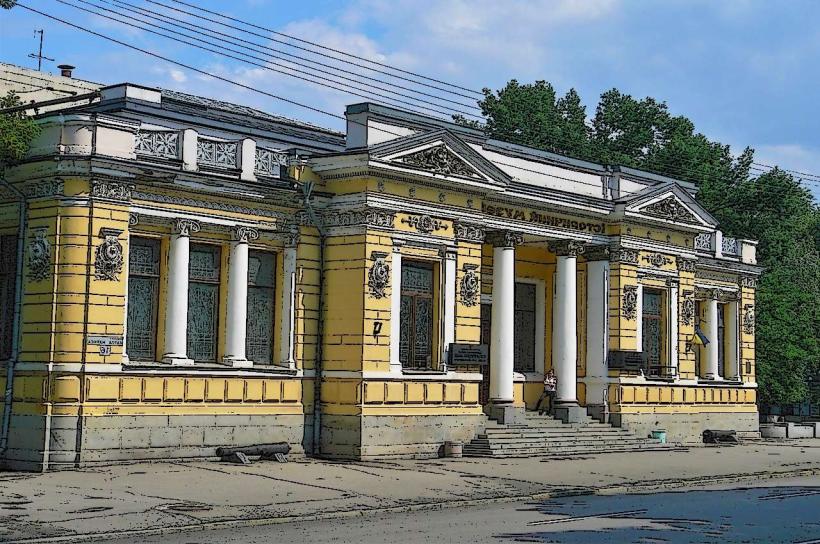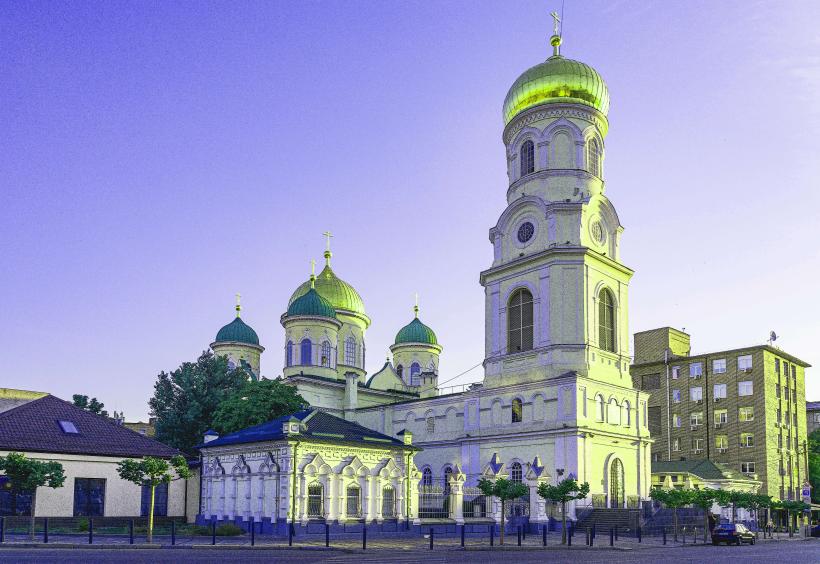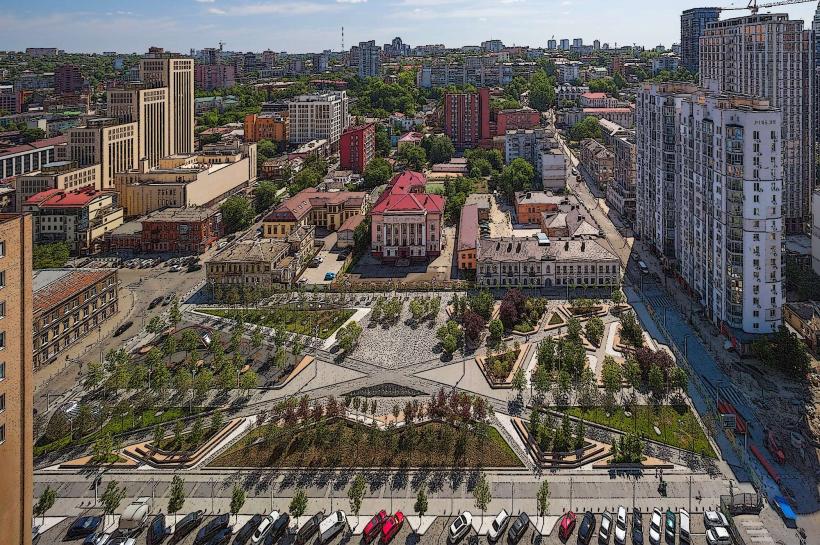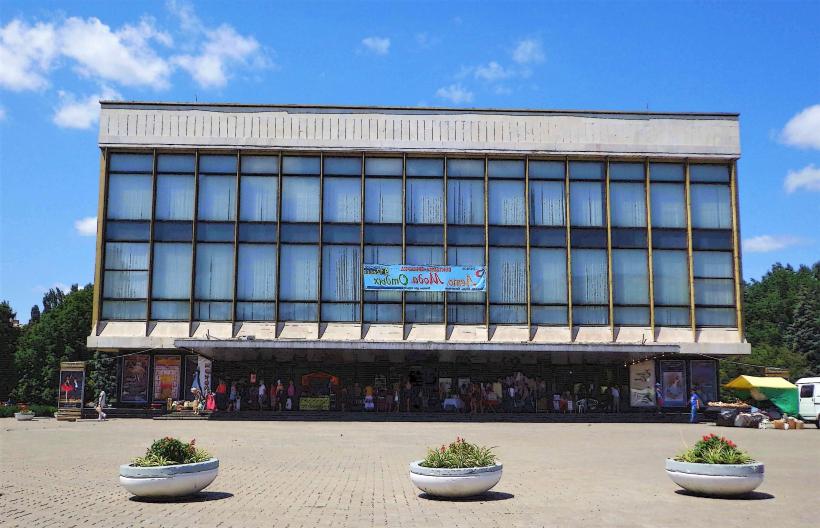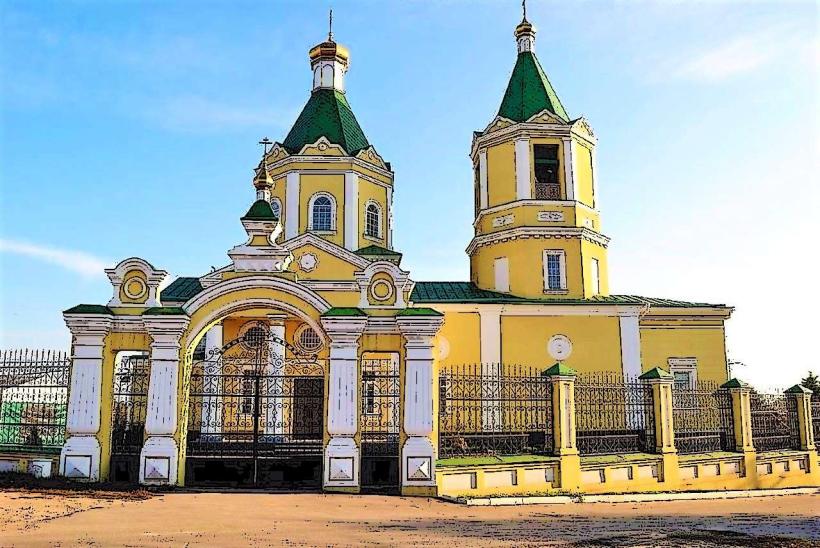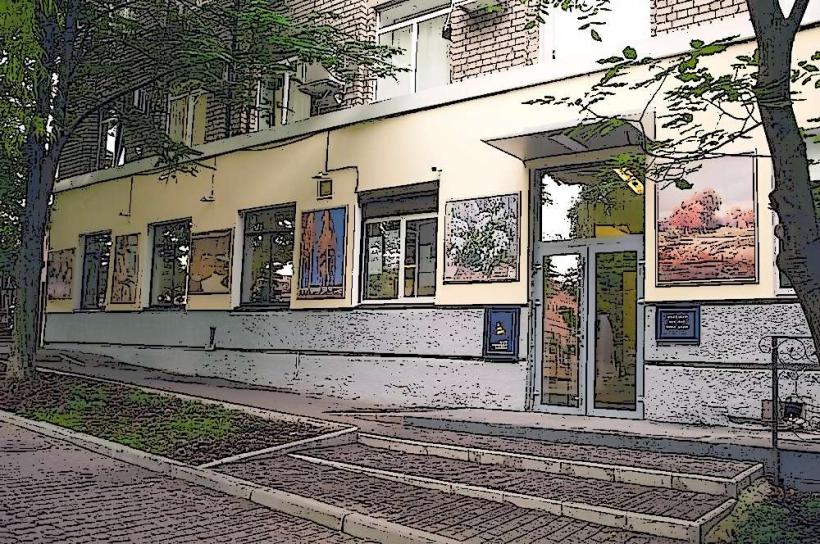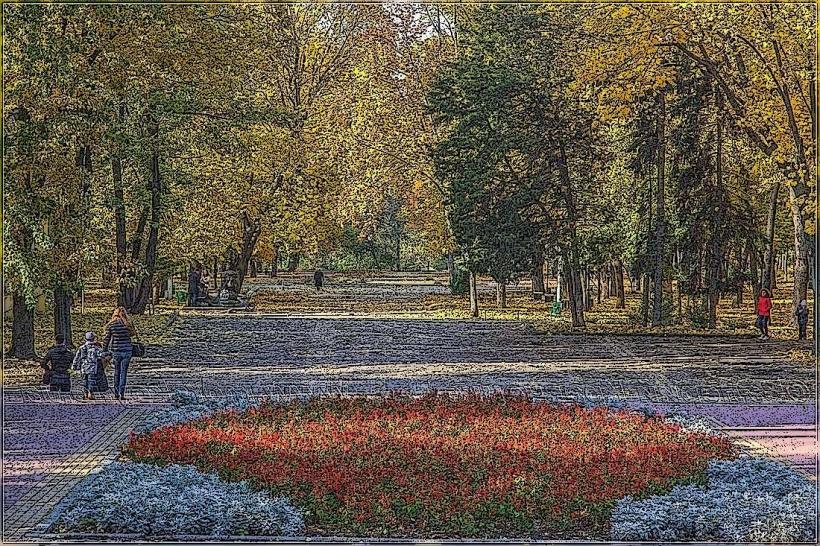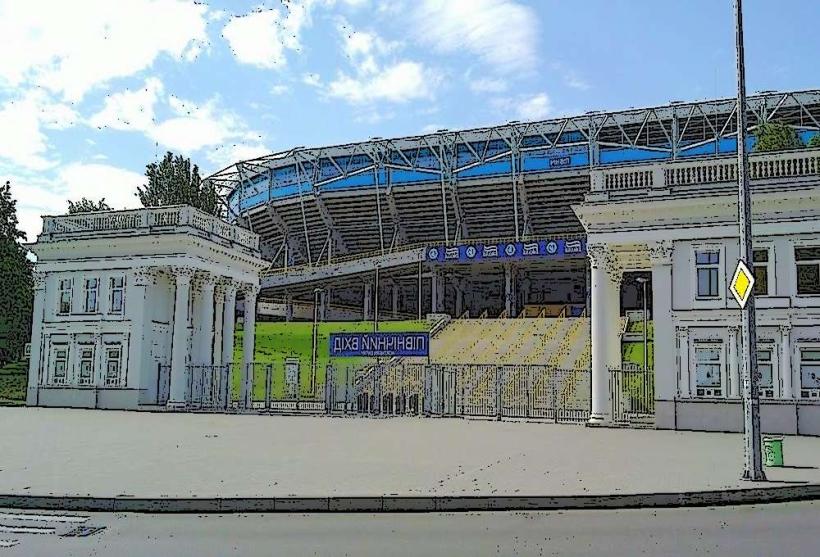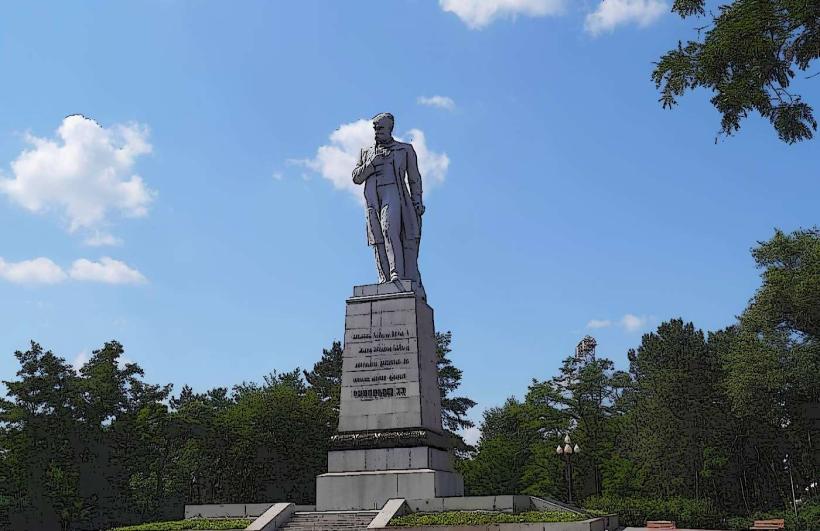Information
Landmark: Holy Resurrection Cathedral (Church of the Descent of the Holy Spirit)City: Dnipro
Country: Ukraine
Continent: Europe
Holy Resurrection Cathedral (Church of the Descent of the Holy Spirit), Dnipro, Ukraine, Europe
The Holy Resurrection Cathedral, also known as the Church of the Descent of the Holy Spirit, is an Orthodox Christian cathedral located in the city of Dnipro, Ukraine.
This religious structure serves as a significant spiritual and architectural point of interest within the urban landscape.
Visual Characteristics
The cathedral is constructed primarily from brick, painted in a pale yellow hue with white architectural detailing. It features a central dome, flanked by smaller domes, all topped with gold-colored crosses. The main facade exhibits classical architectural elements with arched windows and decorative cornices. The building's height reaches approximately 40 meters.
Location & Access Logistics
The cathedral is situated at 45 Soborna Square, Dnipro. It is located in the central district of the city, approximately 1.5 kilometers east of the Dnipro River embankment. Public transport access is available via trolleybus lines 1 and 5, with a stop directly at Soborna Square. Limited street parking is available in the vicinity, though it is often occupied.
Historical & Ecological Origin
Construction of the Holy Resurrection Cathedral began in 1835 and was completed in 1837. It was designed by architect Ivan Starov. The original purpose was to serve as a parish church for the growing population of Dnipro (then known as Yekaterinoslav).
Key Highlights & Activities
Visitors can attend religious services. The interior features iconostasis and frescoes. Photography is permitted during non-service hours. The exterior architecture can be observed from the surrounding square.
Infrastructure & Amenities
Restrooms are available within the cathedral complex. Limited shade is provided by surrounding trees in Soborna Square. Cell phone signal (4G/5G) is generally strong in this central urban area. Food vendors and cafes are located on nearby streets radiating from the square.
Best Time to Visit
For optimal interior lighting and fewer crowds, visiting during weekday mornings between 9:00 AM and 11:00 AM is recommended. The exterior is accessible at all times. Weather is generally most favorable for visiting between May and September.
Facts & Legends
During the Soviet era, the cathedral was closed and used for various secular purposes, including as a warehouse. A local anecdote suggests that during its repurposing, a hidden cache of valuable church artifacts was successfully concealed by parishioners and has yet to be rediscovered.
Nearby Landmarks
- 0.3km West: Dnipro City Council Building
- 0.5km Northwest: Museum of Local History
- 0.8km South: Park of Culture and Recreation
- 1.2km West: Dnipro National University

